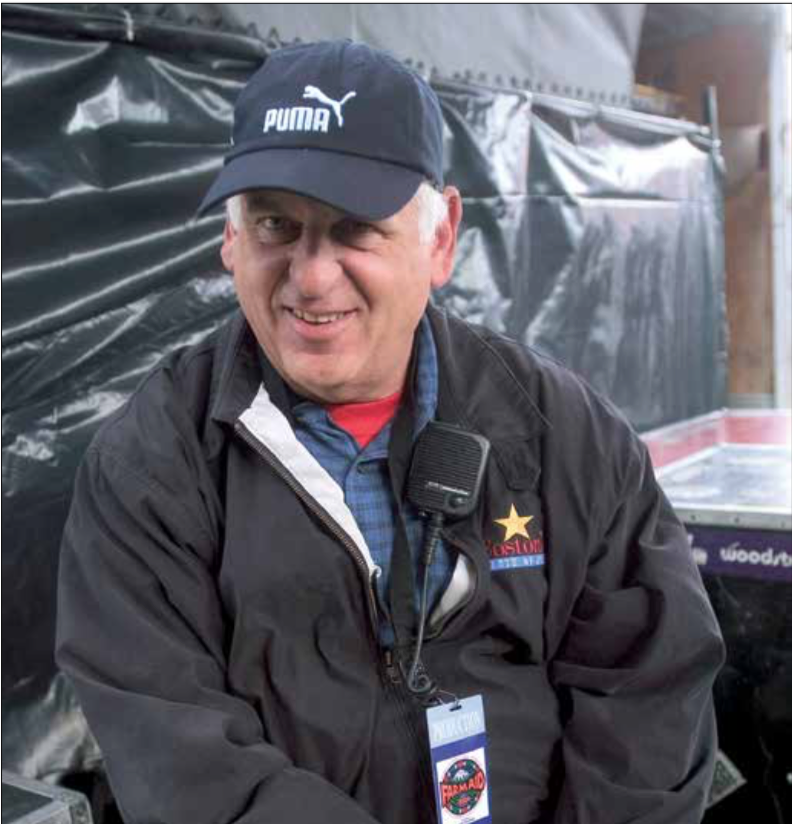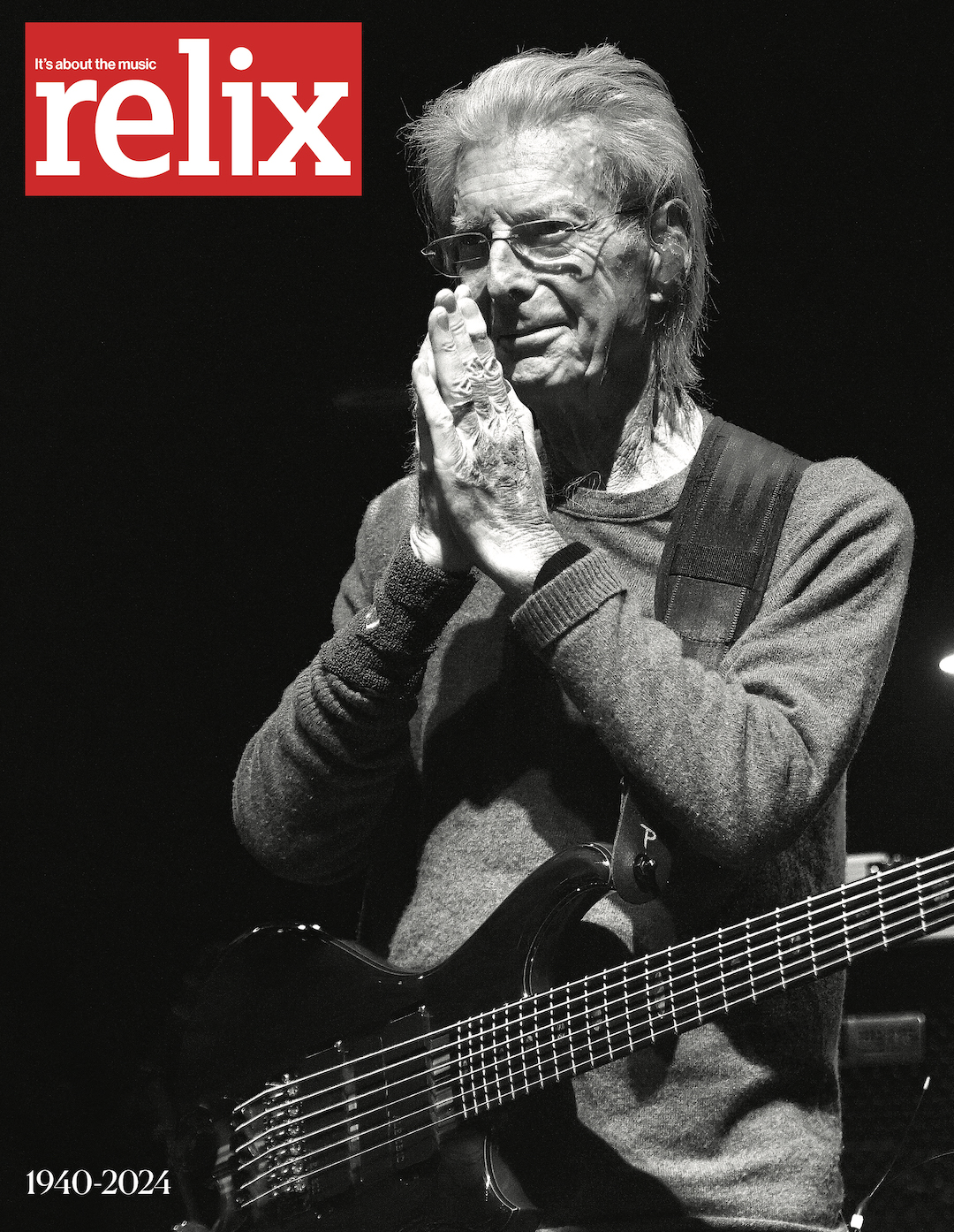Behind the Scene with Farm Aid’s Ron Stern

Ron Stern was the go-to production manager for Jam Productions when Willie Nelson wanted to hire a local company to put on the first Farm Aid at Memorial Stadium in Champaign, Ill., in 1985. Stern, who began in the concert industry in the 1970s, has served as the event’s producer since the late ‘80s. When Stern talks about Farm Aid, it is evident that he still has the utmost respect for the mission and people he works with, even as he acknowledges the idiosyncrasies of such a unique event.
Talk about your first job in the music business and what led you to that job.
I worked in college with Arny Granat, who was starting a company called Jam Productions in the early ‘70s. We were good friends, and when he started the company, one of his venues was the Aragon Ballroom [in Chicago]. He needed young people to work because there really weren’t a lot of experienced people doing live shows then. I became the security guard at the back door and I failed miserably. People would say, “Oh, I’m so and so,” or “I’m her cousin,” and I would say, “OK, come on in.” Quickly, I decided that my career path wasn’t in security, but there was an opening to become a stagehand there, and that’s where I’d say I started— as a stagehand at the Aragon Ballroom.
Did your time working at the Aragon lead to Farm Aid?
As Arny and Jerry [Mickelson]’s company grew, they became the largest promoter in the Midwest. So, not only did I work for them at the Aragon Ballroom, but I also worked with them at other venues, whether it was the Park West, the Uptown Theatre or the Auditorium Theatre. Then, we would start doing shows at the Chicago arenas and stadiums like Soldier Field—that was the infancy of stadium rock. I became known as the stadium show expert in the Midwest.
In ‘85, Willie hired local experts to help produce their first Farm Aid show, and I was the Jam representative to do that. I started as the production manager in year one. In year two, I actually couldn’t do the show, and then [in] year three, I helped to produce it. As the years go by, everybody evolves and grows up. There was a guy named Steve DePaul, who was the producer before, and he went on to a TV job, and I kind of took over for him. So I was hired as the production manager and eventually became the producer.
What lesson did you learn early in your career?
Any good show is about pre- production. If you’re putting out fires and having a crisis the day of the show, then chances are you didn’t put the best team you could possibly put together, and you didn’t do your homework before you got there. It’s about pre-planning, and it’s about instituting the plans.
What are some of the challenges of producing a one-day festival versus a tour that moves from venue to venue?
It’s a completely different mindset because it’s more of a sharing thing, especially at Farm Aid, where we try to give everybody the same treatment. That’s kind of a Willie thing— everybody should be treated the same. When you’re touring, there’s a focus on what’s right in front of you that you do every day. Touring is making the same things happen every day, so when an artist goes up— whether he’s in Moscow or Madrid or Minneapolis—it all kind of feels the same for them. The catering is the same, the soundcheck time is the same, the dressing room furniture looks about the same. That’s what happens in the industry. When you try to do a show in one day and you try to do it with a reasonable budget, the first thing you do is get a lot of fluff out of the show. You get rid of the limousines, you get rid of the alcohol backstage, you get rid of the catering riders—the Farm Aid catering is great, but it’s Farm Aid catering. None of that brown M&M stuff exists on the Farm Aid trail.
The biggest problem for us is that no matter what you tell a roadie or a manager, they sink into a thought that their artist is the most important artist in the world. But on that day, they are just one of 20 of the most important artists in the world.
Can you talk about a memorable story or experience from a past Farm Aid?
I think it was Farm Aid 4 and we were in Indianapolis, and we had Elton John as a surprise guest. There was a kid named Ryan that was dying of AIDS, and Elton is a big supporter of the fight against AIDS, and he was in Indianapolis talking to Ryan’s mother on the phone. We were all thinking, “Oh, this is nice, he’s on the phone with this kid’s mother.” But I said, “Well, did anybody ask him if he wanted to play?” So I went up to him and I asked him in the dressing room. I said, “Elton, I’m sorry to bother you, but your cue is coming up and I don’t know what you want to do or what you don’t want to do, but this is your time. I understand if you don’t want to play the show, but I need to know if that’s your choice.” And he said, “No, I want to play,” and he went onstage and we moved the piano from stage right to stage left because that’s what he wanted, and he played “Candle in the Wind.” It was just breathtaking.



















